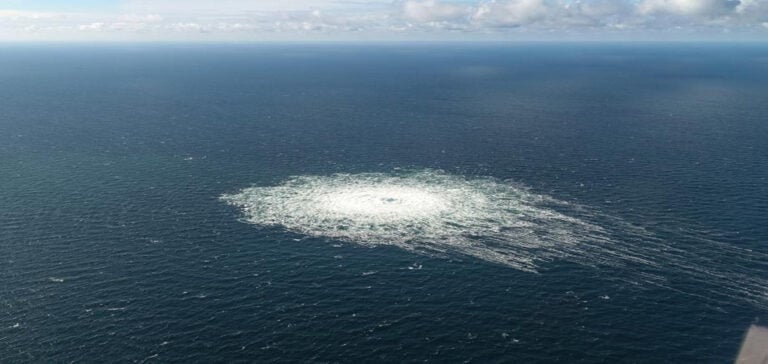An investigation into the Chinese vessel at the heart of the Balticconnector gas pipeline incident has been carried out by the Finnish police. According to the National Bureau of Investigation, the movements of the Hong Kong-flagged vessel Newnew Polar Bear coincide with the time and place of the incident.
A leak in the pipeline on October 8 led to its closure. The Finnish authorities have confirmed that it was due to external intervention. And that raises concerns about possible sabotage. Police are working with Swedish authorities to establish the role of this vessel in the incident.
An external mechanical force causing the damage
Police confirmed that the damage to the pipeline was caused by “an external mechanical force”. A “heavy object” was also spotted near the plant. Investigators also discovered a newly-formed clump of earth, which could contain an extremely heavy object. Police will attempt to recover the object to determine if it is related to the pipeline incident.
According to the Finnish pipeline operator, repairs are expected to take “at least five months”. As a result, Finland is obliged to obtain supplies via its floating liquefied natural gas terminal at Inkoo, in the south of the country.
Previous gas incidents
More than a year ago, on September 26, 2022, four huge gas leaks preceded by underwater explosions occurred on Nord Stream 1 and 2, the pipelines that carried most of Russia’s gas to Europe. The origin of these incidents remains an unsolved mystery.
Natural gas accounts for around 5% of Finland’s energy consumption, and is essential for industry, power generation and heating.
Economic and energy impact
The Balticconnector gas pipeline incident has significant economic and energy repercussions. The closure of the pipeline means that Finland will have to rely on liquefied natural gas, which means additional costs. What’s more, the duration of the repairs, estimated at “at least five months”, raises concerns about the stability of the country’s energy supply.
Similar incidents in the region
This incident is reminiscent of previous gas-related incidents in the Baltic Sea, including leaks and explosions on Nord Stream 1 and 2 in 2022. These events had an impact on Russian gas supplies to Europe, raising questions about the region’s energy security.
Resolving these investigations is crucial to guaranteeing energy stability in the region.
Final Analysis
The Balticconnector gas pipeline incident highlights the energy security challenges facing Finland. Investigations are underway to determine responsibility and prevent future acts of sabotage. Dependence on natural gas and the need for repairs underscore the importance of diversifying energy sources.
Moreover, similarities with previous incidents in the region, such as the explosions on the Nord Stream pipelines, suggest a need for international cooperation to strengthen energy security in the Baltic Sea.






















